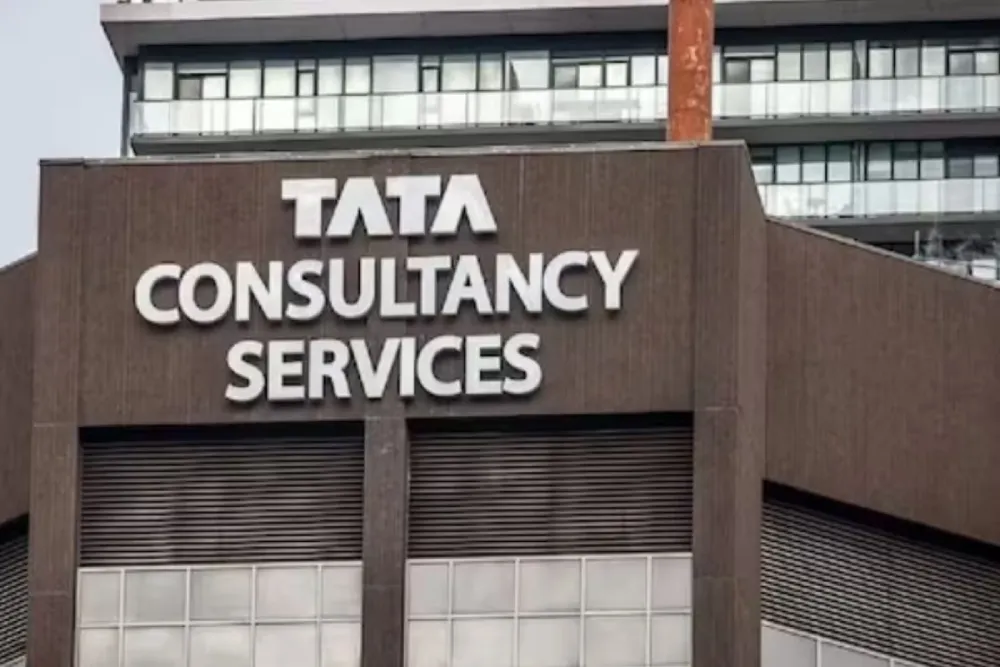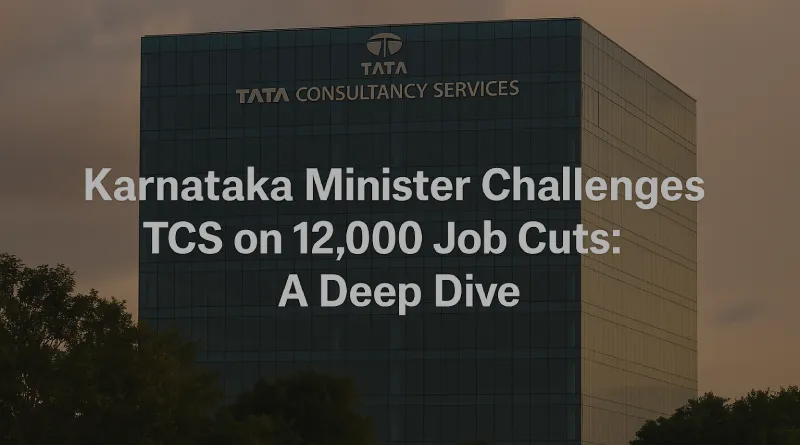Karnataka Minister Challenges TCS on 12,000 Job Cuts: A Deep Dive
Labour Minister of Karnataka Santosh Lad gave the IT giant Tata Consultancy Services (TCS) a red flag over laying off 12,000 employees, terming it as ominous, and has called the company to have a talk with it. The decision, which covers 2.1 percent of TCS’s global workforce of 613,699 as of June 2025, has raised eyebrows about job security issues in Bengaluru, the IT capital of India, where TCS has thousands of employees. The layoffs are among the measures that the company bought into to become a “future-ready organization” amid fast-rising changes in technologies, such as the use of AI, said TCS CEO K. Krithivasan.
The response of Lad shows a conflict between the pro-industry policies and protective laws in Karnataka. The state has awarded certain sunrise industries, such as IT, exemptions from specific labor laws in the country over a period of five years, but under conditions, such as that they have to report the layoffs. Lad has also accused TCS of failing to make the government know, stressing that this type of mass retrenchment is one of the largest ever faced by TCS and there has to be some form of transparency. The matter was brought under amplification by the union named Karnataka State IT/ITeS Employees Union (KITU), who lodged a complaint under the Industrial Disputes Act, 1947, and sought remedy to the same.

TCS claims that AI is not the reason behind the layoff, as it wants to be more agile and require a better skills balance. The corporation has provided basic AI to 550,000 staffers and elite AI to 100,000, but Krithivasan acknowledged that not all positions can be retrained. TCS is easing off benevolently by providing supplement packages, further health insurance, and job facilitation. The abrupt announcement, allegedly posted through an internal email on July 27, 2025, has, however, faced criticism given the timing of the announcement and the fact that it has been announced without prior consultation.
This scenario is symptomatic of overall issues in the Indian IT industry, where macroeconomic trends, as well as changes in client demands, are transforming labor requirements. Then there are the traffic issues in Bengaluru as well that have been complicating the situation, as Lad stated, declining the proposal of the TCS to get people to work 9-10 hours a day, stating that long commutes of the employees are one of the reasons. This ruling highlights the desire of the government to obtain the consent of the employees on labor policy decisions with regard to meeting industry needs and workforce well-being. Given that Karnataka has been working with TCS and other information technology companies, the decision may become precedent as India is faced with choices on tech-led disruptions and protecting its people.
Disclaimer
The information presented in this blog is derived from publicly available sources for general use, including any cited references. While we strive to mention credible sources whenever possible,Web Techneeq – Web Design Company in Mumbai does not guarantee the accuracy of the information provided in any way. This article is intended solely for general informational purposes. It should be understood that it does not constitute legal advice and does not aim to serve as such. If any individual(s) make decisions based on the information in this article without verifying the facts, we explicitly reject any liability that may arise as a result. We recommend that readers seek separate guidance regarding any specific information provided here.

